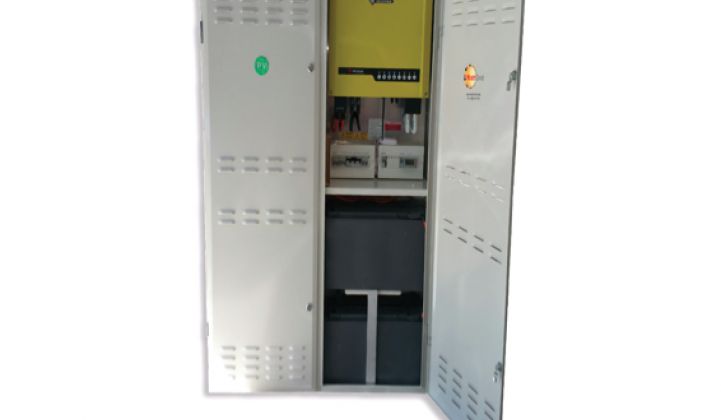Australian storage insiders are not convinced that AllGrid Energy, an Aboriginal storage company, will soon be “one-upping Tesla” in price and performance.
A story about the Australian distributed energy company launching a product to rival the Tesla Powerwall went viral earlier this month.
According to reports, the firm’s AUD $11,999 (USD $8,512) WattGrid unit -- which contains tubular lead-acid gel batteries, a 5-kilowatt solar inverter, battery management system and monitoring software app -- would work out to be 30 percent cheaper than Tesla’s product.
The package sounds great in theory. But competitors aren't impressed.
“For those who know the market well, their offering is underwhelming and already outdated,” said Michael Anthony, CEO of 360Storage, which operates an energy-storage dealer network across Australia. “I think the solutions we are releasing over the next few weeks are significantly advanced on their offering.”
Pricing is uncertain as well. AllGrid spokesperson Deborah Oberon admitted: “We don’t know what Tesla’s Australian pricing will be. U.S. wholesale pricing is $3,500 for a 7-kilowatt battery [sic], which doesn’t include an inverter.”
Furthermore, Oberon confirmed the WattGrid is designed to operate for 2,800 cycles. Tesla’s 7-kilowatt-hour Powerwall is supposed to achieve 5,000. AllGrid’s pricing argument seems largely based on the fact that the WattGrid includes an inverter.
Oberon said AllGrid had cut costs by using “proven battery technology, tubular acid gel, which takes advantage of today's lower prices and enables a larger-sized storage system, lower upfront cost and therefore greater savings.”
However, said Anthony: “They are using lead-acid batteries. The lead-acid batteries are not good for use with grid storage, as they need to the same level, 50 percent, of capacity charged and discharged every day.”
That may be fine for off-grid systems where owners are happy to shape their daily routines in a way that optimizes battery performance, he said.
But for on-grid storage, "You need batteries that can have inconsistent charge-discharge cycling, such as lead-carbon or lithium, which can match the way we really live,” he said.
Anthony noted that 360Storage is already offering products that are comparable to WattGrid, at lower prices.
The company’s recently launched ONE system, which includes carbon batteries, a cabinet, inverters and power electronics, boasts 6 kilowatts of usable energy and is being offered for AUD $5,000 (USD $3,560).
And 360Storage’s 6-kilowatt City Solution comes with lithium batteries, a Solax Power inverter and a Pylon Technologies management system, all for AUD $8,300 (USD $5,912).
Elsewhere, AGL Energy’s 7.2-kilowatt PowerLegato system, which includes an AU Optronics battery, 3-kilowatt inverter, 10-year guarantee, and installation, is priced at AUD $9,990 (USD $7,300). LG Chem is shipping 6.4-kilowatt-hour storage units for AUD $6,898 (USD $5,100).
This means AllGrid, a joint venture between energy-efficiency player Consolidated Industrial Holdings and Aboriginal-owned electrical contractor DICE Australia, could have its work cut out to conquer Australia’s budding residential battery storage market even before Tesla arrives on the scene.
For now, the Brisbane-based company is looking to profit from regional incentives such as an AUD $5,000 (USD $3,560) rebate being offered by Adelaide City Council in South Australia.
In addition, AllGrid has launched an off-grid and backup power product called PortaGrid, which contains solar panels, batteries, an inverter and an uninterruptible power supply system.
The system is notable for having retractable panel system that can be activated to close up by an optional built-in weather station, protecting the PortaGrid from damage from strong winds or storms.
“The PortaGrid product is already attracting interest, with the company in discussions with national parks about supplying the units for remote sites that currently rely on diesel generators,” reported The Fifth Estate, an Australian property sector publication.



